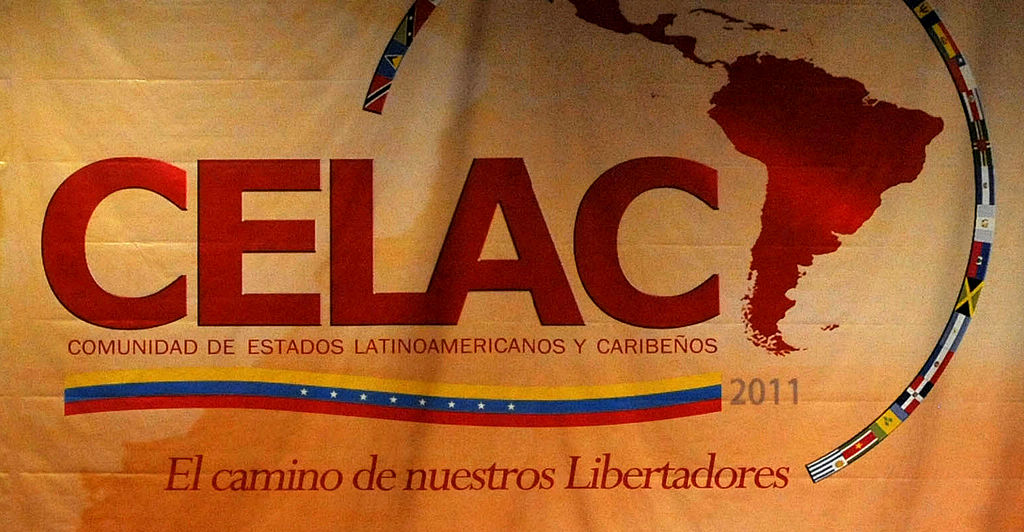
In 1983 Colombia, Mexico, Panama and Venezuela created a forum to mediate armed conflicts in Central America. At the time, the need for them to create forums for direct dialogue became clear., without the intermediation of other countries, if they really wanted to overcome the conflicts. It became known as the Contadora Group. (name of the island of Panama on which the meeting took place).
In 1985 Argentina, Brazil, Peru and Uruguay joined the group and, created the Permanent Mechanism for Political Consultation and Conciliation in Latin America and the Caribbean, also known as the Rio Group. The Rio Group is not an international organization per se, insofar as it does not have a secretariat responsible for implementing and monitoring the proposals. No entanto é um importante espaço para a concertação diplomática, especialmente em momentos de crises.
In 2010, durante a Cúpula da Unidade da América Latina e do Caribe, foi criada a Comunidade de Estados Latino-Americanos e Caribenhos (CELAC). Trata-se de um bloco regional composto por 33 países da região e que tem uma relação direta com os esforços anteriores, that is, é mais um importante espaço para a concertação diplomática (and politics) sem que haja a interferência de outros países.
Além de temáticas técnicas (como educação, energy, infraestrutura e transporte), é um importante espaço para o encaminhamento de questões políticas, tanto de âmbito regional como mundial. Já foram emitidos pronunciamentos sobre temas globais como desarmamento nuclear e mudança do clima e temas regionais como a questão das Ilhas Malvinas ou o bloqueio comercial a Cuba.
Além de ser um espaço privilegiado para a construção de agendas a partir dos interesses da região, o CELAC também mantem constante diálogo com outros blocos e representações internacionais. O que se percebe é que há uma evolução ao longo destas décadas nos fóruns de diálogo entre os países da região, tanto em termos de quantidade de países participantes, quanto de amplitude das agendas encaminhadas.
In January 2020 o Brasil suspendeu sua participação na CELAC. Em nota, o Ministério de Relações Exteriores informou que “não considera estarem dadas as condições para a atuação da Celac no atual contexto de crise regional”. Informalmente o desconforto do governo se dava em relação a participação de Cuba e Venezuela no grupo.
Dada a relevância do Brasil para a região, seu afastamento deste grupo enfraquece seu papel de construtor e moldador das agendas internacionais da região. Ao mesmo tempo em que a CELAC perde, o Brasil também perde, só que ainda mais. Se o Brasil realmente quer se afirmar como líder regional é preciso entender que (1) as ideologias de governo não devem ser o principal quesito para selecionamentos com quem queremos interagir internacionalmente e (2) o poder brasileiro não é suficiente para afirmar o país como uma potência regional sem que sejam utilizados os fóruns adequados para encaminhamentos de projetos de colaboração.
Apenas para ficarmos num exemplo de como isso é importante, é possível pegar a agenda dos pagamentos intra-Estados. Normalmente são usadas algumas moedas para fazer as mediações das transações comerciais internacionais (geralmente o dólar e o euro). Essa forma de transacionar leva à dependência das condições que marcam essas moedas, o que acaba por afetar a própria capacidade comercial. No Mercosul, for example, foi desenvolvido um mecanismo para que os pagamentos internacionais entre os países do bloco sejam feitos com moedas locais. O mesmo poderia ser feito num âmbito ampliado, envolvendo outros países da América do Sul e do Caribe. For this, é preciso que a CELAC, ou qualquer outra organização do mesmo gênero, seja empoderada.
Like this, mais do que posicionamentos ideológicos, precisamos de posicionamentos reais que ajudem o Brasil a desenvolver um papel mais significativo na construção da agenda regional.
